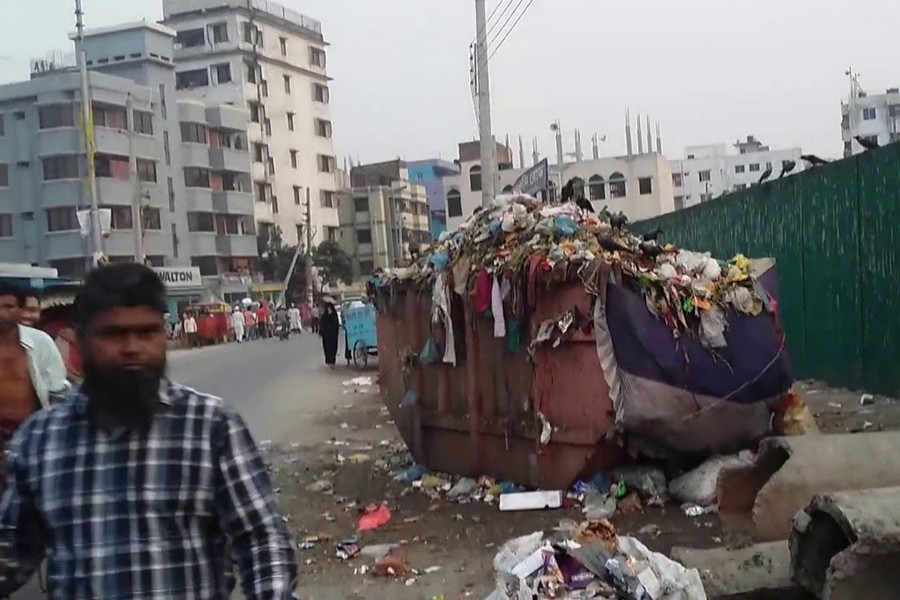Around 40 per cent of solid wastes generated in the country's urban areas remain unmanaged, creating adverse environmental impacts and public health hazards, according to a study.
It revealed that such unmanaged garbage results in developing various types of vermin and spreading more than 40 kinds of diseases.
Uncollected waste also pollutes open grounds and surface water bodies and produces bad odour from methane gas, it added.
The Bangladesh Institute of Development Studies (BIDS) conducted the study styled 'Organic Solid Waste Management and the Urban Poor in Dhaka city'.
The study also showed that organic matter is depleting the soil in rural areas, adding that 83 per cent of the soil has less than 3.5 per cent organic matter in rural areas.
Total waste generation in urban areas increases to 46 per cent during the wet season, it said.
At present, urban waste generation is estimated to be 47,064 tonnes a day while it was 6,493 tonnes and 13,300 tonnes in 1991 and 2005 respectively.
The objectives of the study were to investigate the urbanisation in Bangladesh, solid waste management situation, problems of solid waste management in urban areas and so on.
Total solid waste generation in Dhaka City Corporation area is 3,800 tonnes a day. Per capita waste generation is 0.56 kg a day. Apart from this, 70-80 per cent of the solid waste is organic, the study said.
Two case studies also showed that the poor people suffer from various problems in Agargaon and TT Para areas due to unmanaged garbage.
"People face mosquito menace and children often fall sick due to garbage which also sends out bad odour. Their eyes become red when they go out."
Besides, the study put focus on the vulnerability of the urban poor.
Urban environmental degradation has particular negative effects on overall health of the population with specific negative consequences for the abject poor.
"Migrants are continuing to move to the city. The problem is compounded by the living and working conditions in which these people exist," it said.
The major threat to health and livelihoods arises from heaped garbage, lack of sanitation facilities and environmental pollution that surround them.
There is evidence that some slums have mushroomed on accumulated garbage in Kamalapur area.
The study also identified challenges for the poor in urban areas where it said the space within urban areas is differentially allocated for the rich and the poor; the challenge to remain viable, especially for the poor, becomes highly fragile because of lack of adequate urban services.
The study also suggested that cities like Dhaka must resolve important management issues that can make urban living more congenial.
The targeted, but critical urban management issues like garbage collection should be based on innovative approach which can minimise economic and environmental degradation, the study said.
It suggested that DCC devise strategies for efficient solid waste management to strengthen institutional capacity and increase participation of the private sector in solid waste management.
In particular, promotion of community-based programmes and local initiatives with NGO support are important and the formulation of laws and regulations, it recommended.
The model of decentralised community-based composting by waste concern has demonstrated enough evidence that an effective partnership arrangement can be developed between the public sector, the community, and the private sector.
In a multi-storey building in DCC, rooftop tube-type biogas plant can help improve the waste management, produce biogas and organic fertiliser which could be used in rooftop gardening, it also suggested.
Dr Anwara Begum, Senior Research Fellow of BIDS, and Mitali Parvin, Research Associate of BIDS, conducted the study.


